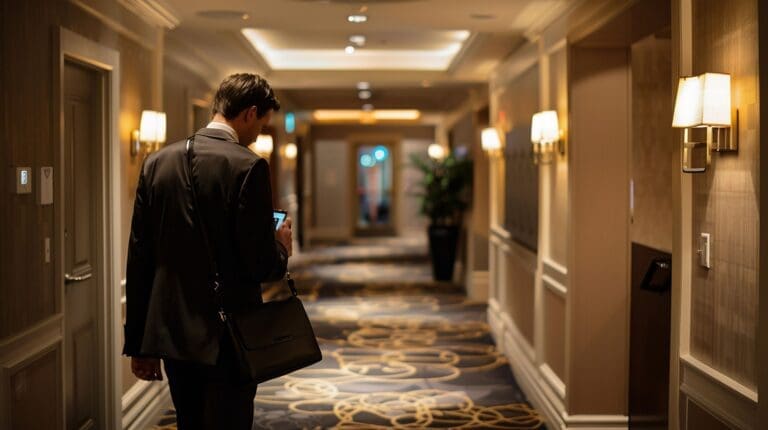 Most people enjoy the thrill of being in a new place, even if it’s just for a night or two. Whether it’s for a vacation or a business trip, staying at a hotel is a great way to enjoy your time away.
Most people enjoy the thrill of being in a new place, even if it’s just for a night or two. Whether it’s for a vacation or a business trip, staying at a hotel is a great way to enjoy your time away.
But today, hotels are going beyond the basics of a cozy bed and room service and are now fostering a sense of community among guests. Owners and managers are continuously creating new ways to make guests feel at home and more connected with others than ever before.
Leveraging nostalgia marketing to create a sense of familiarity and comfort
Nostalgia has been proven to be an effective marketing tool for many industries. There is a powerful emotional response that comes with listening, watching, or experiencing certain things that remind us of the past.
Whether the message comes from refreshed video marketing campaigns from years ago, reintroducing us to famous branding characters, or leveraging classic logos and slogans, nostalgia marketing leans on our human emotions as a quick attention-getter and powerful sales conversion strategy.
Hotel owners are no strangers to the power of nostalgia marketing and are stepping up their game by offering unique and unforgettable experiences to their guests. To create an environment of nostalgia and familiarity, hotels are incorporating design elements, music, and other subtle details to make their guests feel right at home.
Hotels can bring back happy memories for their guests by incorporating nostalgic music into the guest experience. Music has a powerful effect on our emotions and memories, allowing guests to relive special moments from the past.
By playing music from various eras, hotels can make their guests feel connected to the good old days.
Hotels can enhance their rooms or lobbies with retro design elements like mid-century modern furniture or vintage maps. These subtle additions can transport guests to another time and place, far from home. Guests can even enjoy nostalgic experiences like a vintage car ride or classic movie night, giving them a welcomed trip down memory lane.
Supporting guest mental health and fostering community
Hotels are more than just a place to sleep – they’re a second home to many. Because of this, It’s the management’s duty to prioritize their guests’ mental health and foster a welcoming sense of community. This isn’t a responsibility that should be taken lightly.
Hotels can improve their guests’ mental well-being by offering easy access to mental health resources. This can range from information on local mental health clinics to in-room yoga and meditation classes.
By providing such resources, hotels can help reduce the stigma surrounding mental health and create a more inviting atmosphere for guests seeking support. Certain hotels have taken it a step further and set up mental health hotlines for guests to call when they need someone to talk to.
Others have partnered with mental health organizations to provide guests with additional therapy sessions and other mental well-being resources. These resources could prove to be invaluable, especially during times of stress or loneliness.
Another way hotels can improve their guests’ well-being and support mental health in their communities is by providing psychological first aid (PFA) training for staff. PFA involves developing skills to support individuals in distress following a traumatic experience.
With PFA training, hotel staff can identify guests’ mental health concerns and offer emotional support when needed. Providing PFA training creates an atmosphere of empathy and caring within the hotel, benefitting both guests and staff alike.
Hotels can also promote a sense of community among guests by providing shared spaces where guests can socialize and connect with one another. This can include everything from communal dining areas to outdoor spaces for guests to relax and unwind.
Some hotels have even gone as far as to create community-focused events like movie nights and game nights to encourage guests to interact and get to know one another. By creating a sense of community, hotels are providing guests with an experience that goes beyond just a place to stay.
Personalizing the guest experience with AI and digital marketing
Hotels are feeling the push to provide more personalized services, just like every other industry. Fortunately, AI and digital marketing can help hotels rise to this challenge and deliver truly memorable experiences for their guests.
With data analytics and AI, hotels can personalize guest experiences by segmenting them based on preferences, behaviors, and demographics. By understanding their guests at a deep level, hotels can offer tailored services to meet their needs. For instance, hotels can ensure that guests receive their favorite meals regularly if they consistently order them.
AI-based chatbots have revolutionized hotel personalization. These bots gather and analyze guest data from various platforms, such as chats, social media, and web pages. Thanks to AI, they can provide personalized recommendations for food, drinks, and activities guests love.
Additionally, AI personal assistants utilizing speech recognition software can offer tailored guidance to improve the guest experience.
Hotels are continuously evolving
Hotels are always changing to keep up with their guests’ needs. They use new technology and adjust to changing preferences to create a unique experience for every guest. Beyond providing a cozy bed, hotels now prioritize mental health and community, which is an important part of the modern hospitality industry.
As the years go by, we can expect to see even more innovative approaches as these trends continue to shape how hotels are managedg



















